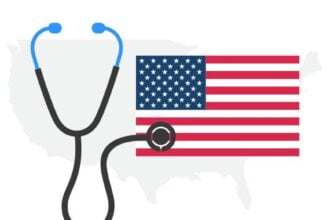The before-and-after pictures of the tsunami in Japan are heart-wrenching. And things look to be getting worse. From the New York Times: “With hydrogen gas bubbling up from chemical reactions set off by the hot fuel rods, the storage pond produced a fire and powerful explosion on Tuesday morning that blew a 26-foot-wide hole in the side of reactor No. 4 at the Fukushima Daiichi nuclear power plant. There were also concerns about the storage ponds at reactors 5 and 6.” What is the health impact of the potential nuclear disaster? According to the Kaiser Family Foundation: “The most immediate risk from high levels of radiation exposure is thyroid cancer, and the Japanese government is planning to distribute potassium iodide pills to help lessen the risk. In worst-case scenarios in which nearby residents are exposed to very high levels of radioactive fallout, they can develop other cancers years later. However, a complete meltdown of the reactors “would not necessarily mean medical doom, experts said. It depends on the amount and type of radioactive materials,” according to the article, which compares the current situation to previous nuclear reactor disasters at the Chernobyl plant in the Ukraine and the Three Mile Island plant in Pennsylvania (3/15). According to CNN, two U.S.-based companies have received hundreds of orders for potassium iodide since the earthquake (Smith, 3/15).” This is just another reminder that medical care is only one component of health. Your behavior (e.g., exercise, smoking), your genetics, and your environment (e.g., environmental pollutants like radiation) are also key contributers to health. Let’s hope the environmental health influencers improve in Japan and the nuclear reactor is controlled quickly.





